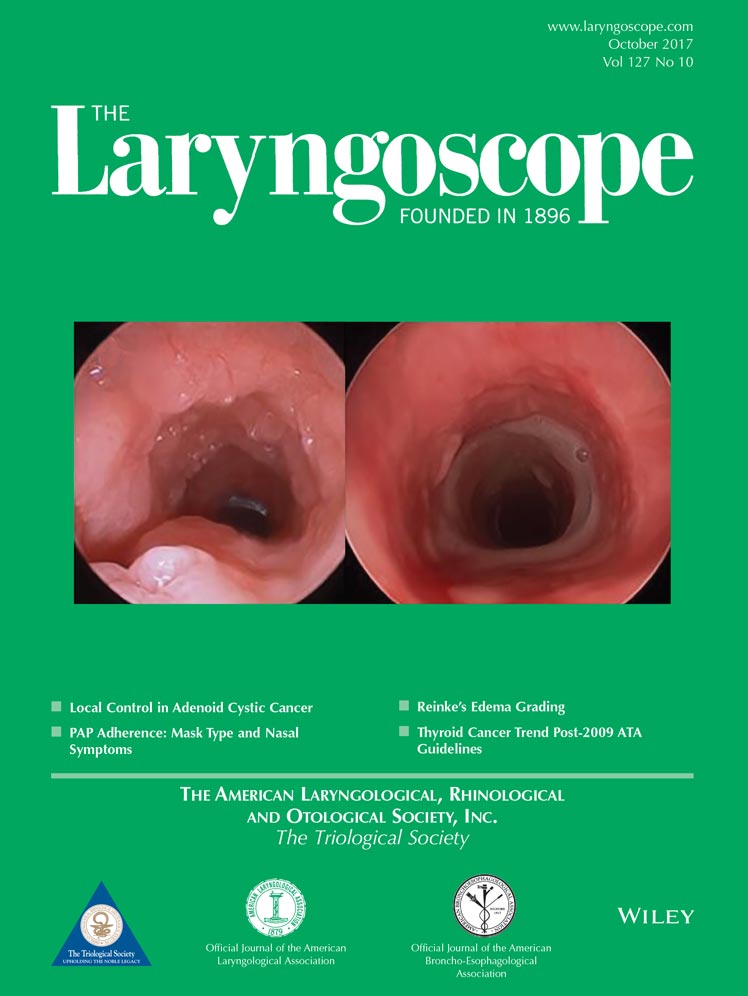Systemic bevacizumab for recurrent respiratory papillomatosis: A national survey
Financial support for this study was provided by the National Institute on Deafness and Other Communication Disorders, Mentored Patient-Oriented Research Career Development Award (1K23DC014758 [S. Best]).
The authors have no other funding, financial relationships, or conflicts of interest to disclose.
Abstract
Objectives/Hypothesis
Aggressive laryngeal, tracheal, and pulmonary papilloma is an extremely challenging clinical problem without proven treatment options. A recent German report documented promising results with systemic bevacizumab. The objective of this study is to report the initial experience of this novel treatment in the United States for recurrent respiratory papillomatosis (RRP).
Study Design
Cases series.
Methods
Electronic survey of the RRP Task Force of the American Society of Pediatric Otolaryngology, American Broncho-Esophagological Association, and physicians known to the authors to have used systemic bevacizumab for RRP.
Results
Eleven completed surveys were obtained. In three cases, systemic bevacizumab was considered clinically but not administered. Eight patients were treated with systemic bevacizumab, all for aggressive papillomatosis uncontrolled by surgical and adjuvant therapy, including seven of eight with pulmonary disease. Treatment dosing ranged from 5 to 10 mg/kg every 2 to 4 weeks, with all patients responding (7/8 partial response, 1/8 complete response). In four patients who had postbevacizumab chest imaging, three demonstrated improvement of disease and one stabilization. Treatment interval could be lengthened in seven patients and clinical response maintained. One patient with long-standing pulmonary disease (>10 years) was diagnosed with malignant transformation while on treatment, and bevacizumab was discontinued in lieu of other chemotherapeutic agents. All other patients continue on systemic bevacizumab with minimal complications (hemoptysis n = 1, proteinuria n = 1).
Conclusions
Systemic bevacizumab appears to have significant promise in the most treatment-resistant and aggressive forms of papillomatosis with a low complication profile. These results suggest bevacizumab should be studied in a formal clinical trial for RRP.
Level of Evidence
4. Laryngoscope, 127:2225–2229, 2017




